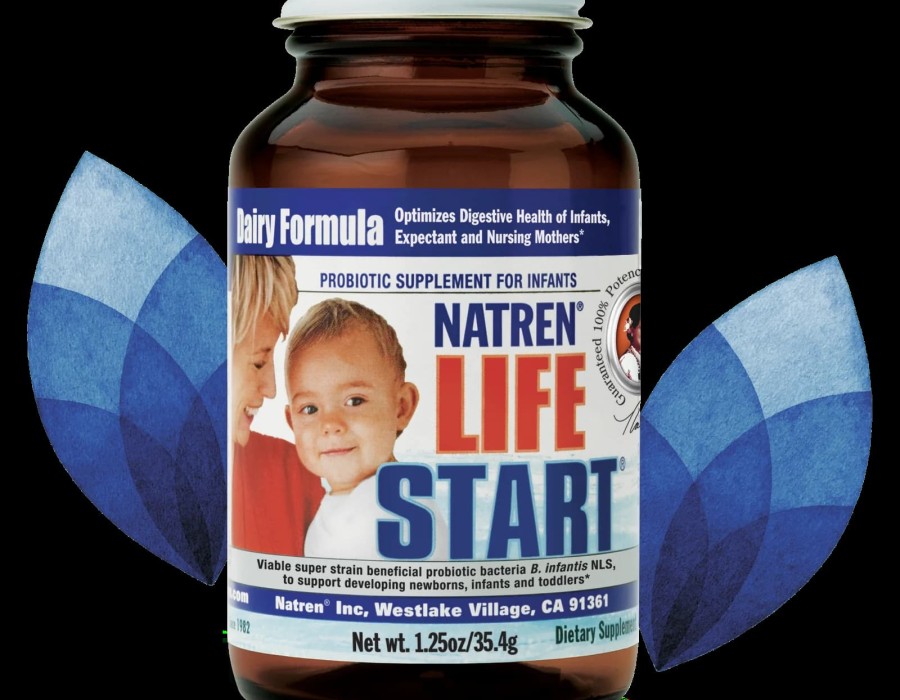As a parent, nothing is more distressing than seeing your infant in discomfort, especially when it comes to tummy troubles. Whether it’s colic, gas, constipation, or general fussiness, these issues can be challenging for both the child and the caregiver. While there are various methods to alleviate these concerns, an increasingly popular option is the use of probiotics for infants. These beneficial bacteria can play a significant role in promoting digestive health and overall well-being in infants
Understanding Probiotics
Probiotics are live microorganisms that provide health benefits when consumed in adequate amounts. Commonly referred to as "good" or "friendly" bacteria, these microorganisms are found naturally in various foods and supplements. They help maintain a balanced gut microbiota, which is crucial for proper digestion and immune function. Infants, particularly those who are breastfed, naturally receive some probiotics from their mother's milk, which is essential for establishing a healthy gut environment.
The Importance of Gut Health in Infants
The gut microbiome, which is the community of microorganisms residing in the digestive tract, is crucial for a child's development. A healthy balance of bacteria can influence digestion, immune function, and even mood.
In infants, an imbalanced microbiome can lead to a range of gastrointestinal issues, including:
- Colic: Characterised by excessive crying and fussiness, colic affects many infants, often leading to stress for parents. Research suggests that probiotics may help reduce colic symptoms by promoting a healthier gut microbiome.
- Constipation: Digestive discomfort can manifest as infrequent or difficult bowel movements. Probiotics can aid in normalising bowel function by enhancing the gut flora and improving stool consistency.
- Diarrhoea: This can occur due to infections or antibiotic use, disrupting the balance of gut bacteria. Probiotics can help restore this balance and reduce the duration of diarrhoea episodes.
- Gas and Bloating: Infants often experience gas buildup, leading to discomfort. Probiotics can assist in breaking down food more effectively, reducing gas production.
Benefits of Probiotics for Infants
- Eases Digestive Issues: Probiotics can help alleviate various digestive problems. They can assist in breaking down complex carbohydrates, making digestion smoother and reducing gas and bloating.
- Supports Immune Function: A well-balanced gut microbiome is essential for a robust immune system. Probiotics can enhance the body’s natural defence mechanisms, helping to prevent infections and illnesses.
- Promotes Nutrient Absorption: By improving gut health, probiotics facilitate the absorption of essential nutrients, including vitamins and minerals, which are vital for an infant’s growth and development.
- May Reduce Allergies: Some studies suggest that probiotics may play a role in reducing the risk of allergies in infants, particularly eczema and asthma. This is thought to be linked to the immune-modulating effects of probiotics.
- Enhances Mental Well-being: Emerging research indicates a gut-brain connection, suggesting that gut health can influence mood and behaviour. Probiotics may contribute to a calmer disposition in infants by promoting a balanced gut.
Safety and Administration
When considering probiotics for your infant, it is essential to choose products specifically formulated for young children. These products should have strains that are well-researched and proven to be safe for infants. Always consult with a healthcare professional before introducing any new supplement to your child’s diet, particularly if they have underlying health conditions or are taking medications.
Probiotics can be administered in various forms, including powders, drops, and fortified foods. For infants, the powdered form can easily be mixed with breast milk or formula. However, ensure that the product does not contain any artificial additives or sugars, as these can counteract the health benefits.
Considerations Before Use
While probiotics are generally safe for infants, there are some considerations to keep in mind:
- Underlying Health Issues: If your infant has a weakened immune system or other serious health concerns, probiotics may not be advisable. Always consult with a paediatrician before starting probiotics.
- Variety of Strains: Different strains of probiotics can have varying effects. It may be beneficial to choose a product that contains multiple strains for a broader range of benefits.
- Dietary Sources: In addition to supplements, consider incorporating probiotic-rich foods into your infant's diet as they grow. Fermented foods such as yogurt can be introduced after the appropriate age, providing natural sources of beneficial bacteria.
Monitoring Effects
When introducing probiotics, it’s essential to monitor your infant’s reaction. Improvements in digestive comfort may take some time, and it is crucial to remain patient. Keep track of any changes in bowel movements, gas, and overall behaviour. If any adverse effects occur, such as increased discomfort or allergic reactions, consult a healthcare professional immediately.
Final Thoughts
Navigating tummy troubles in infants can be challenging, but considering probiotics as a potential solution may provide relief. These beneficial microorganisms offer a range of advantages, from easing digestive discomfort to supporting immune function. As with any health-related decision for your child, informed choices are paramount. By consulting with healthcare professionals and choosing high-quality probiotic products, you can help ensure that your infant receives the best possible start in life.
Incorporating probiotics into your infant's routine may not just alleviate immediate digestive issues but also contribute to long-term health benefits. As research continues to uncover the complexities of the gut microbiome, probiotics are becoming an increasingly recognised tool in promoting optimal health from the very beginning of life.





Comments